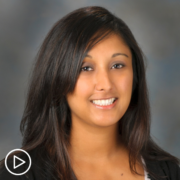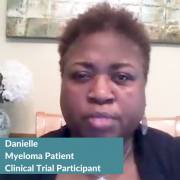When Jeff Boero shares his multiple myeloma patient journey, it’s clear that self-education has been a vital part of his experience. He was first diagnosed through his primary care physician who referred him to a general oncology group in the San Francisco area. They confirmed it was multiple myeloma. It soon became clear to Jeff and his wife that he perhaps needed a second opinion, and he was connected with the University of California San Francisco (UCSF) to their multiple myeloma specialist.
The second opinion changed the approach to Jeff’s care rather dramatically. He was quickly scheduled for a stem cell transplant and subsequent maintenance after that. As Jeff recalls, “Through UCSF, I became eligible for a CAR T-cell immunotherapy trial in 2017. That was very successful and kept me disease-free and medication-free for about 2-1/2 years. And then I relapsed and went on another maintenance program. I became eligible for another clinical trial for a bi-specific T-cell engager (BiTE) that I’m on now and am having good results.”
Jeff was almost in complete denial about his diagnosis for the first 6 months. The diagnosis threw him into a world of terminology and treatment that was completely foreign to him. That sense of his diagnosis feeling foreign also started to lead into a certain level of depression — just not knowing what it is, how is it going to be treated, what it meant to his long-term survival. Jeff remembers, “So, with the encouragement of my wife as caregiver, I became more educated as I engaged in various conversations with specialists and participated in some of the PEN webinars. It became clearer to me about what some of the options are and what they can be. Being engaged with UCSF really opened up the treatment options. With me becoming more educated and able to speak the language of myeloma, I was starting to understand the diagnosis as it was presented by UCSF. And it led to a much richer engagement in conversation with the oncologist and with the nurse practitioners.”
As a cancer patient, Jeff views self-education as the key to empowering patients toward better care. It was through self-education that he learned about other options. Before becoming more educated, Jeff was mostly just listening and trying to absorb as much as he could and seemed to remember mostly bad news. According to Jeff, “There’s so much good news around myeloma treatment and available therapies. It was through self-educating and those conversations that my outlook brightened too.”
By patients educating themselves, they can start to ask questions about the clinical trial like: “What is it, and why is it going to show better results than my maintenance therapy?” And in conversation, patients can start to better understand the purpose of the clinical trial. “I think it’s important for patients to understand what they’re trying to accomplish through the clinical trial that wasn’t through their maintenance therapy. What is it about this trial that’s different that we haven’t addressed previously?” But patients can’t ask those questions unless they have at least a basic understanding of their cancer and how the various therapies approach the cancer cell. “But if you listen to webinars and things like that, you’re better able to have those conversations. As a matter of education as these opportunities arise, you’re able to have a much richer conversation with your oncologist and your care team about the benefits that could potentially be derived from the clinical trial.”
Clinical trials have benefitted Jeff, and he recommends seeking an opinion that is dedicated to research of your specific cancer. Learning institutions have more access to emerging research and treatments that likely won’t be FDA-approved until 2 or 3 years later. “So if you as a patient can be at the forefront of some of these trials, that can be tremendous. I’m on therapies now that didn’t even exist when I was diagnosed. Research is moving quickly.”
Jeff senses some hesitancy among patients about clinical trials. “There’s this misconception that if you join a clinical trial, one group is getting the real stuff, and one group is getting the placebo. And the trials that I’ve been in, everybody gets the real thing, and everybody’s progress is tracked on their response to the real thing.” He knows trials can seem intimidating. Jeff went through his initial clinical trial, because he was almost out of options for conventional maintenance therapy. His cancer burden continued to increase, and he’d been through a number of different treatments. “The CAR T-cell program came up and seemed to be a perfect fit for me. So I did the clinical trial partially out of necessity, but I also had extreme confidence in my oncologist that he was promoting something that he thought would be most beneficial for me. I think it’s a matter of putting trust in your oncologist. Maybe I’ve been lucky, but I’ve had good results and good response to both clinical trials.” He also feels that the sponsoring institution will give an honest appraisal of where the program stands and what the progress and success has been up to that point.
Reflecting on the value of Patient Empowerment Network (PEN) and other resources, Jeff says, “I’ve gotten so much out of the PEN webinars that are provided and some other organizations. I’m a slow learner in this area but am absorbing as much as I can. I need to hear the same thing a few times before I start to absorb it and fully understand it. So I rewatch the PEN webinars, and it works for me.” He also suggests learning as much as one can but was advised early on to stay away from Google. “There’s so much out-of-date information. Whereas websites like Patient Empowerment Network’s and others have updated information that’s far more relevant. And I also find the navigation on the PEN website very easy to use.”
After meeting patients who don’t have the same level of health insurance benefits, Jeff feels a sense of gratitude. “I had tremendous support from my employer who in essence said take the time you need to get yourself well again. So I have a lot of gratitude for that support, my wife as caregiver, family, social support, my faith community, and for my proximity to UCSF that makes treatment very practical and very possible.” It’s opened his eyes in that regard. There are so many benefits that he has that others don’t have. “I’ve joined various support groups initially to gain support. Now things have come full circle, and I find that I’m at the other end of the conversation to give people comfort in what they could possibly be doing to improve their situation.”
Support Resources
Financial Assistance Programs
Financial Resources for Patients and Families
Health & Disability Insurance
Federal & State Benefit Plans
Is It Too Late for a Myeloma Second Opinion?






